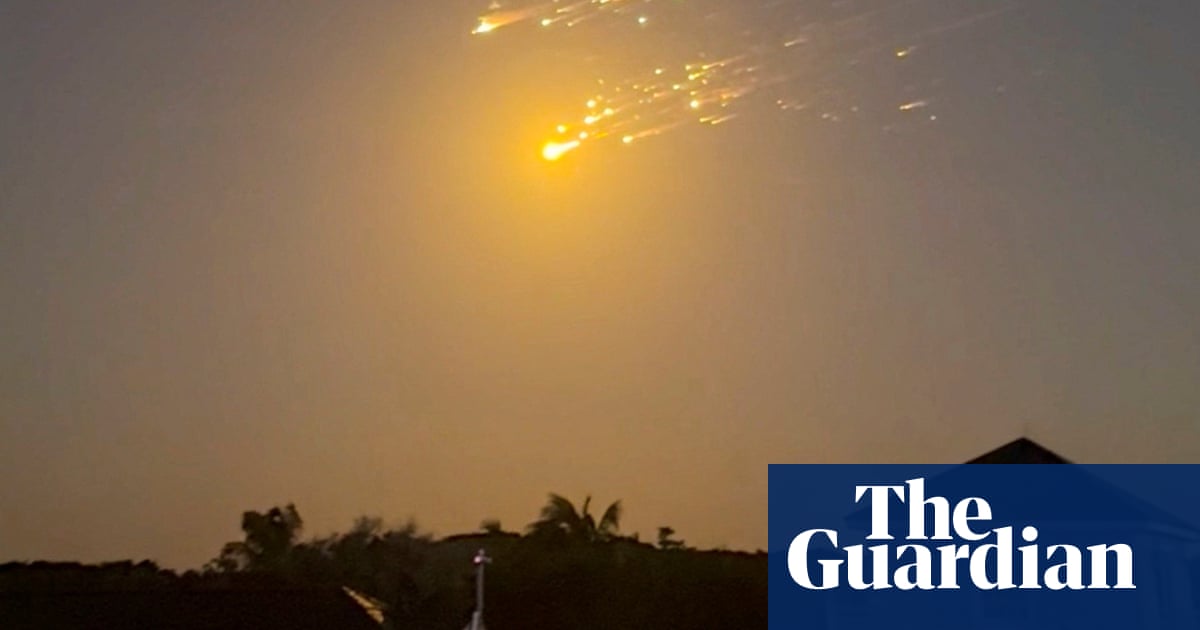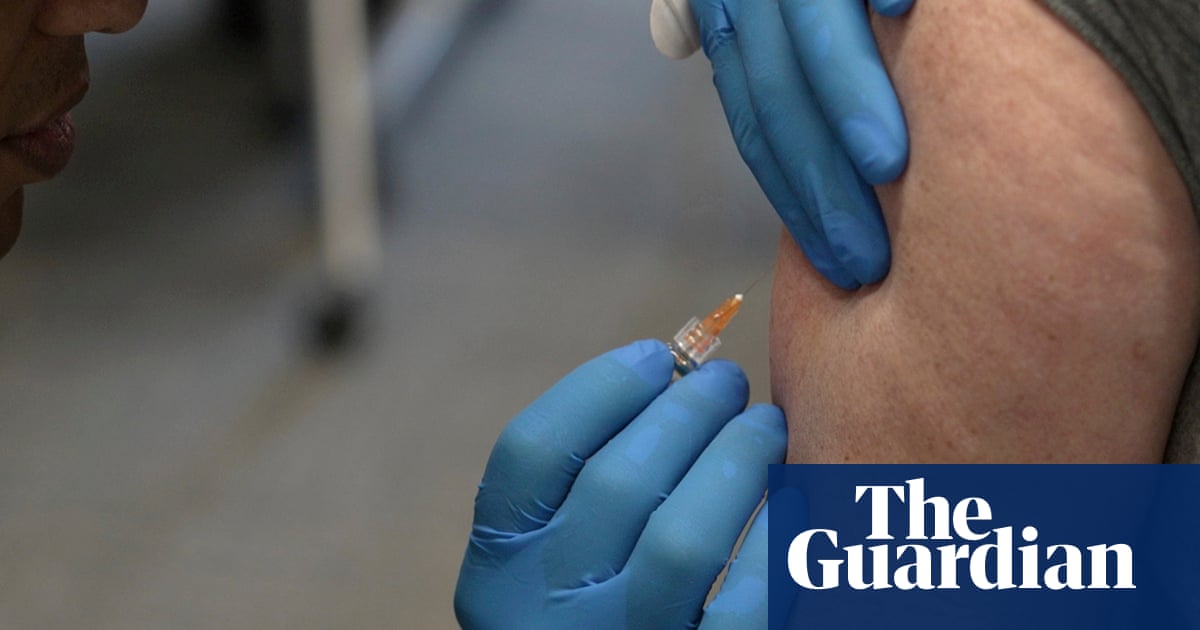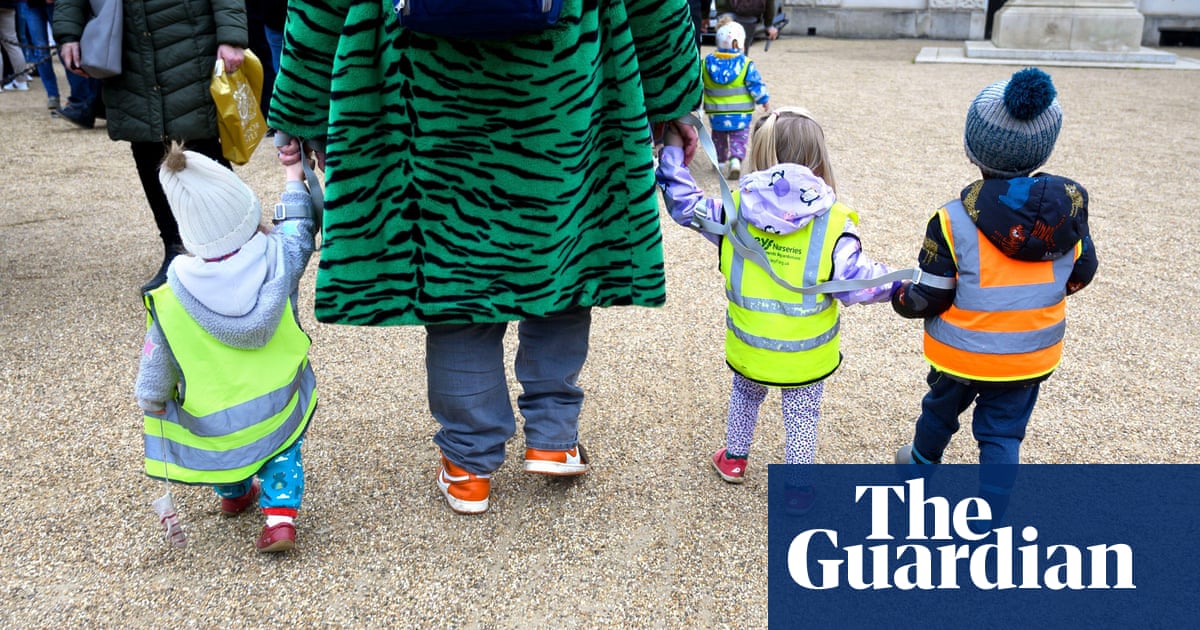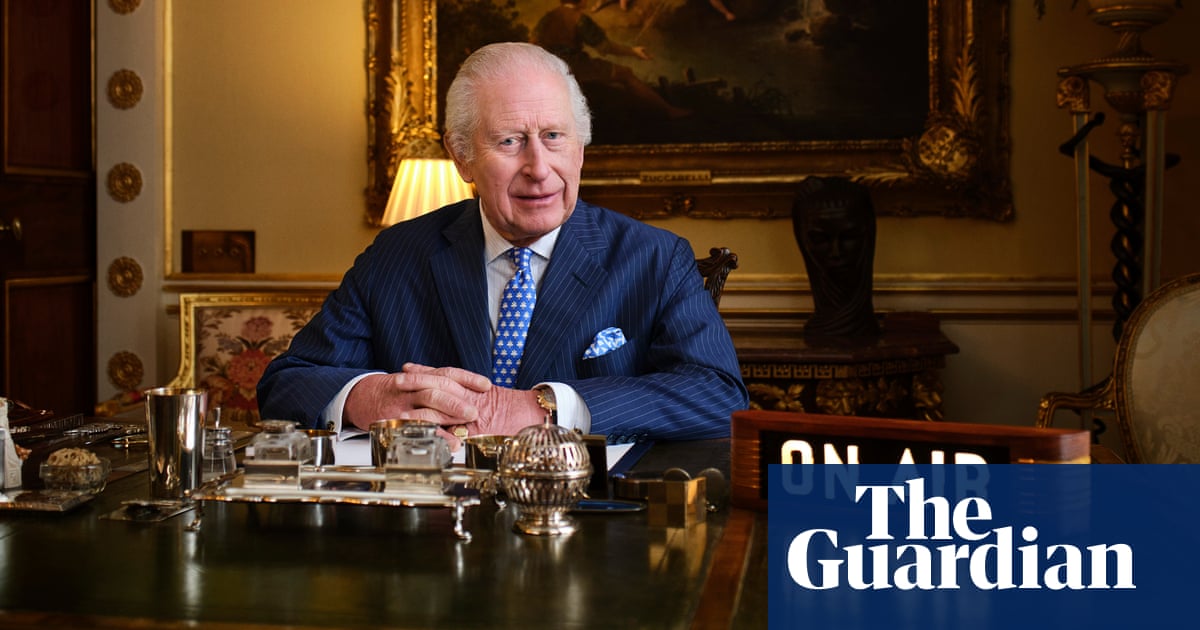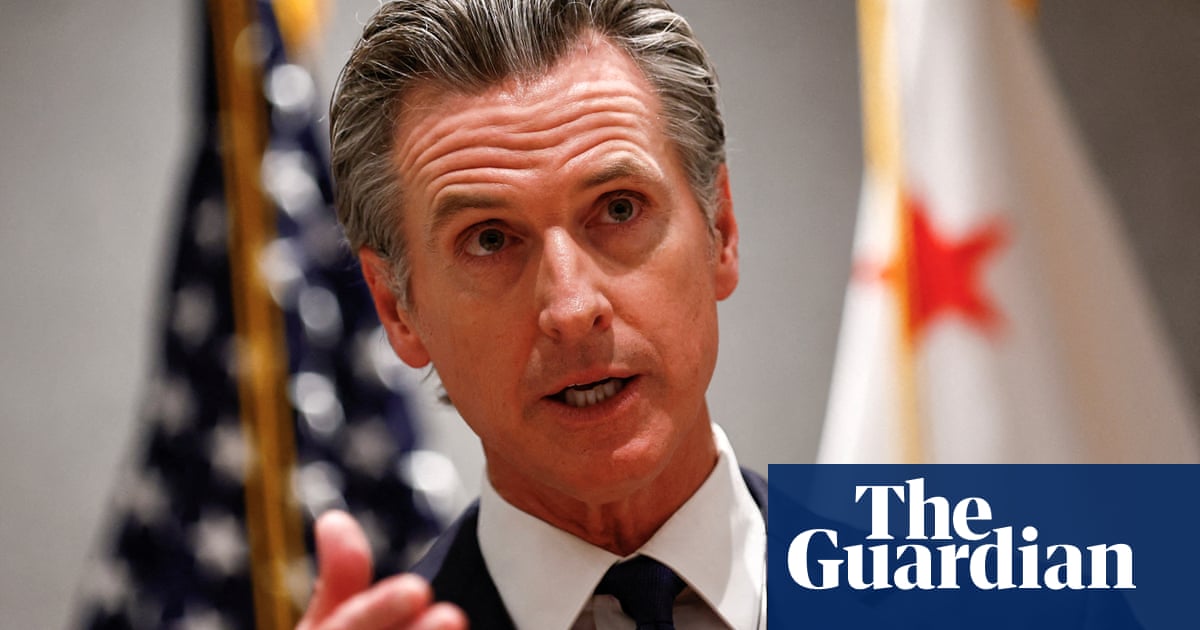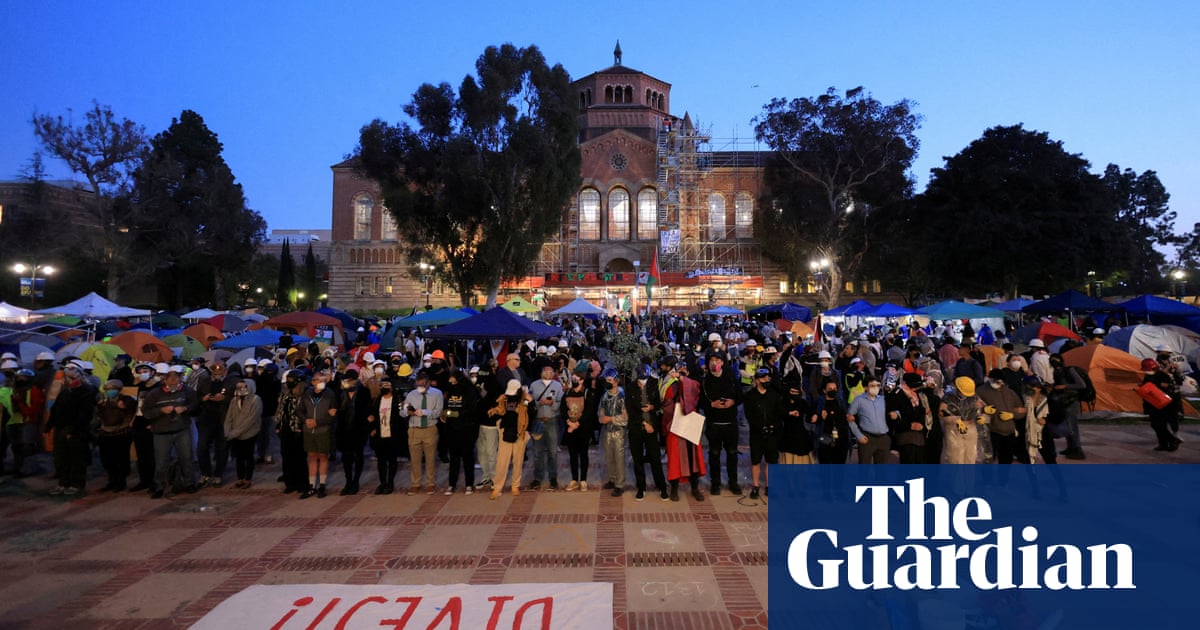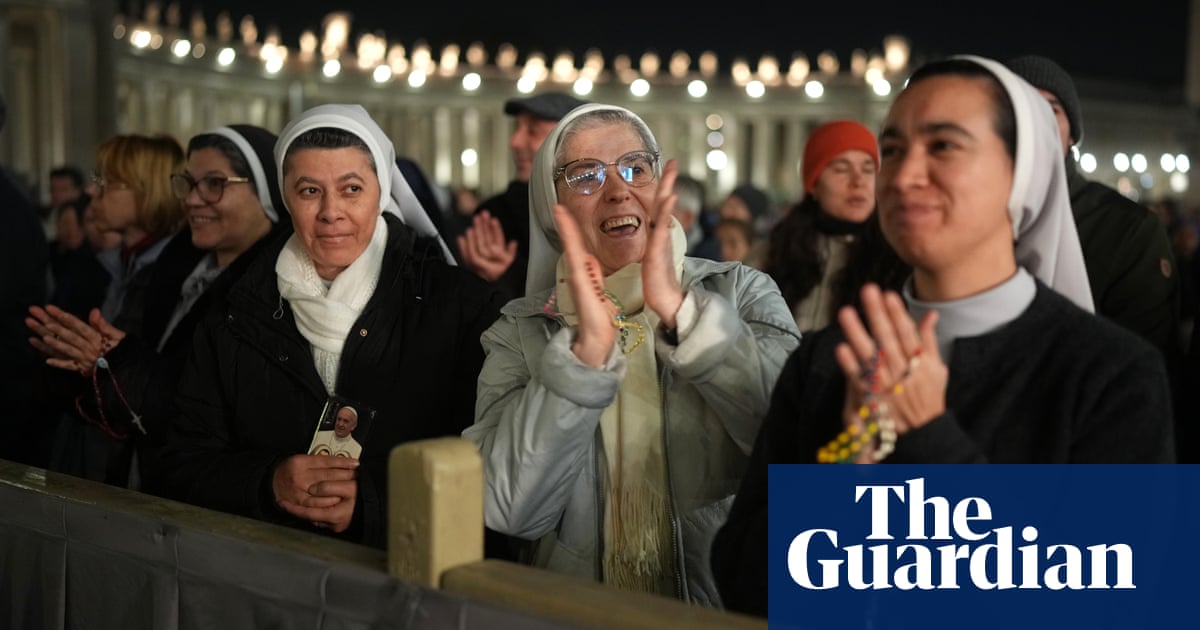It was mid-morning in downtown Port-au-Prince and already two shooting victims had been rushed into the hospital past a mural instructing visitors to leave machetes and rifles outside.
The two men – a 60-year-old accountant and a 29-year-old electrician – sat in the trauma centre’s “shock room” being patched up as the city around them fell apart.
“We had one yesterday – it was an 81-year-old man who was going about his business and … then his life changes,” said James Gana, a Nigerian doctor who runs the unit for the French NGO Doctors Without Borders (MSF).
Minutes later sirens blared and a third casualty was wheeled in after also taking a bullet – the latest victim of a year of mayhem in Haiti, which the UN says has claimed several thousand lives.
The arrival of a Kenyan-led international policing mission in June prompted a brief lull in the fighting between security forces, self-defence vigilante groups and a coalition of politically connected gangs called Viv Ansanm (Living Together) who appear determined to seize almost complete control of Haiti’s capital for a mix of criminal and political reasons.
But in recent weeks – seemingly after gang leaders realised the 400-member security mission was too weak to challenge them – the bloodshed has again accelerated, prompting calls for a larger peacekeeping operation.
“What we have today, it will not work,” said Pierre Espérance, one of Haiti’s leading human rights advocates as he sat in his group’s headquarters in Port-au-Prince.
Espérance admitted it was painful to call for yet another foreign deployment in a country that has suffered a succession of humiliating and ill-conceived interventions since a 19-year occupation by the US Marines in 1915. The last such intervention – the 13-year UN stabilisation mission Minustah, which ended in 2017 – was blamed for human rights violations, sexual abuse and causing a cholera outbreak that killed thousands and continues to haunt the country.
“But at the same time, Haitian people are exhausted. They are tired. There is no life in Haiti,” Espérance said as gang combatants continued their latest offensive against two strategically located neighbourhoods just a few miles from where he sat.
Haiti’s interim prime minister, Garry Conille, echoed those sentiments, criticising the international community for failing to send sufficient resources and troops to help the foreign mission restore order. “We are facing urban guerrilla warfare … [but] we still do not have what we need to fight this battle,” Conille said, according to the newspaper Le Nouvelliste.
Gana, a 31-year-old primary healthcare physician, has had a front-row seat for the recent surge in violence at the MSF’s Turgeau emergency centre, which is close to Port-au-Prince’s biggest public park, the Champs de Mars, now one of the frontlines of the gang insurrection.
The criminal uprising has turned the area just west of that plaza – which is also home to the presidential palace – into a bullet-riddled ghost town from which most residents have fled. Stray dogs and families of chickens roam the empty, litter-strewn streets. Gunfire can be heard day and night.
“It is becoming intense once again. It’s been about two weeks where we have an increase in patients,” said Gana, who arrived in the Caribbean city in January just days before criminal groups rose up against the Haitian state and toppled the unpopular prime minister, Ariel Henry.
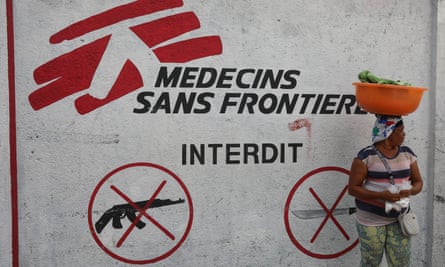
Almost immediately Gana was forced to respond to an explosion of violence that saw gangs capture major roads and besiege government buildings and the airport, cutting Haiti’s capital off from the world.
The hospital’s staff treated shooting victims from all walks of life and of all ages, including toddlers and babies. “The team … they go right into action, regardless of the age of our patients. But … it’s definitely something that’s impacting to see,” Gana said of those wounded infants.
During the most intense periods of fighting, up to 16 gunshot victims have been admitted per day. Such was the grip the gangs had on the city that the wounded sometimes took up to 12 hours to reach the emergency room, Gana said, since they were unable to leave home to seek treatment.
“It’s an incredibly difficult situation. We’re here to see how we can support – but it’s indescribable,” said Gana, whose office overlooks one of scores of camps for internally displaced people that have opened to house families fleeing the gangs. According to the UN’s migration agency, 700,000 Haitians now live in such temporary shelters, including 350,000 children.
after newsletter promotion
Haiti’s humanitarian crisis has been compounded by the fact that several clinics and hospitals have been forced to close because they are located in areas that have been captured by armed groups. They include its biggest public hospital, the General Hospital, which was at the heart of the response to the 2010 earthquake that pulverised Port-au-Prince and killed an estimated 200,000 people.
Back then, volunteer surgeons flew in from around the world to amputate limbs from those crushed by falling debris. These days doctors in Port-au-Prince are dealing with different kinds of injuries inflicted by weapons of war, many of which are smuggled in from the US.
“We’ve seen very, very big exit wounds; we’ve seen smaller ones; we’ve seen ricochets ... we see it all,” said Gana as he toured the emergency department, which was briefly forced to close last year after a severely wounded patient suspected of being a gang member was dragged from an MSF ambulance outside, beaten and shot dead.
The stories of the two shooting victims being treated during the Observer’s visit to the ER spoke to a city that has tumbled deeper into criminal tyranny and turmoil since the president, Jovenel Moïse, was murdered in his hillside mansion in 2021.
That still poorly explained assassination – and the subsequent collapse of the Haitian state – paved the way towards today’s security breakdown, ushering in a ferocious push for power by Haiti’s gangs: well-financed and heavily-armed groups that local politicians have long been accused of bankrolling and equipping in order to intimidate rivals and reap the electoral benefits of their territorial control.
The following years saw kidnappings and sexual violence surge and thousands of people forced from their homes as gangs advanced across the capital and the surrounding region. By some estimates, 85% of Port-au-Prince is now outside government control and run by criminal groups.
The wounded electrician – who asked not to be named – was among those forced to flee his home in Carrefour Feuilles, a low-income area to the city’s south, when it came under attack in August 2023. “I lost everything,” he recalled as he sat in a wheelchair waiting to be sent to another hospital.
Like thousands of Haitians, the electrician has spent more than a year moving between different shelters that have opened in abandoned schools, churches, cinemas and even government offices. It was outside one such shelter that he was hit by a stray bullet shortly after 10am one recent morning. “You just got shot,” a friend told him as they chatted. “No way!” the electrician remembered replying. “But when I looked down, I saw the hole, and the blood started coming out.”
The accountant described a similar moment of shock as he realised a projectile had ricocheted into his belly as he took a morning stroll, fortunately missing his vital organs.
The man explained how the sound of gunfire had become inescapable in the working-class community where he lives in recent months as gunmen from the recently formed Viv Ansamn coalition fought to expand their domain, shooting at enemies and civilians alike. “When they come, you might be asleep, but then suddenly there’s shooting everywhere: rata-tata-ta,” he said, mimicking a barrage of shots.
“It’s the kids who are doing this,” he said, blaming extreme poverty and neglect for swelling the ranks of Haiti’s gangs. “These are children who grew up without a childhood … 13-year-olds, 10-year-olds.”
As he fiddled with the bandage wrapped around his right knee, the electrician tried to put a brave face on his injury and his country’s plight.
“You know, we’re like reeds,” he said, quoting a Haitian adage according to which, like the plant, the country’s long-suffering citizens bent under great pressure but never broke. “As long as there’s life, we keep going. We’ve been struggling for a long time.”

.png) 3 months ago
29
3 months ago
29


